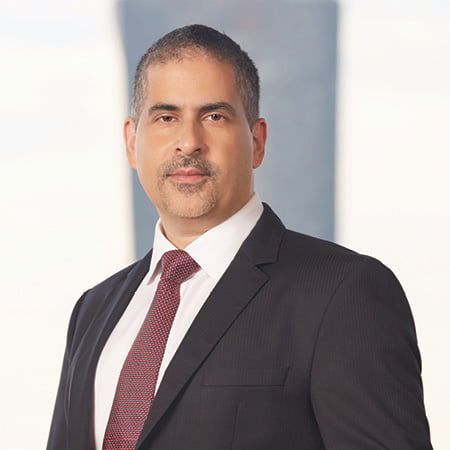Dr Carl Firth, Founder and CEO of ASLAN Pharmaceuticals, has had an interesting career path. “I am a scientist by training,” he says. “I have a PhD in Molecular Biology from Cambridge University. When I left university, I joined AstraZeneca, initially working on the research side of the business.”
After about five years in research and development, Carl made what he calls “a rather unusual decision” to move into the commercial side of the business. “Not a lot of folk in research do that,” he says. “I did my Executive MBA in London and used that to move across into global sales and marketing, helping to support some of our brands around the world.”
In 2004, he relocated from the UK to Asia, where he has lived ever since. During his first three-year stint in Shanghai, he oversaw AstraZeneca’s new drug development for the Chinese market. Next came Singapore, where he managed regional business development.
Then it was another “rather unusual shift”, this time into investment banking with Bank of America Merill Lynch. “I headed up the Asia Healthcare banking team for almost three years,” he says.
“An IPO is not the end of a story — it’s the beginning of a new phase for the company and a new source of capital.” – Carl Firth
After a time, however, Carl came to a conclusion. “I have the greatest respect for bankers,” he says, “but I am not a banker in my heart. I always felt that there must be something more meaningful for me to do.”
This search for meaning and purpose led to ASLAN Pharmaceuticals, which Carl founded in 2010 with a number of his former colleagues from AstraZeneca. ASLAN is a biotech company focused on developing drugs to treat cancer, particularly those cancers that are prominent in Asia.
“Diseases like cancer of the stomach and cancer of the liver are far more common in Asia than they are in the West, and there are effective therapies for these diseases,” says Carl. “So we have set up a business in Asia taking advantage of some of the great clinical centres here to run studies on these diseases, though we still try to leverage the data to get approvals around the world.”
With headquarters in Singapore and subsidiaries in Taiwan, Australia and China, ASLAN has been growing strongly, and its leadership team is determined to make an initial public offering (IPO) this year.
“Having worked in investment banking before, I have familiarity with public markets and have taken companies out to IPO in the US, Hong Kong, Singapore and other markets. I would tell my clients that an IPO is not the end of a story — it’s the beginning of a new phase for the company and a new source of capital.”
An immediate consideration, once the decision to float had been made, was where to list. Choosing the right market is the key to ensuring maximum investor interest. Singapore and Hong Kong are big on property, retail and financial services, says Carl, but not so big on biotech.
In the US, biotechs have been down 30–40% over the last 12 months and show no signs of bouncing back in the short term. And Australia? “Australia has done well for smaller companies, but there hasn’t been quite as much interest from the larger investors for the bigger companies.”
This left Taiwan, where Carl sees promise. “There were more biotech IPOs in Taiwan last year than any other Asian country,” he says. “It’s a healthy scene with a lot of investor interest. We felt that because we were already doing some work in Taiwan it would be a good place for us to list.”
While this is a big step for ASLAN, the focus on innovation and bringing lifesaving treatments to market never wavers. Carl believes ASLAN’s first drug could launch within two or three years, and he envisages a billion-dollar enterprise with several drugs on the market soon after that.
“In Singapore, there is a lot of talk, as in many countries, about creating unicorns,” says Carl. “These are the so-called mythical creatures — tech firms or biotech companies that have a potential to become billion-dollar companies. I actually hope we can surpass that mark within the next two years. We only want to grow further.”



